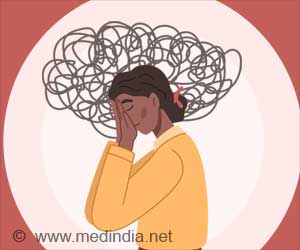A study has found that insomnia in particular chronic insomnia puts youth at a greater risk of future somatic and psychological problems.
A study has found that insomnia in particular chronic insomnia puts youth at a greater risk of future somatic and psychological problems. This study, one of the largest epidemiological studies of insomnia among adolescents to have been conducted in the US, is published in the February 1 issue of the journal SLEEP.
Robert E. Roberts, PhD, professor of behavioral sciences at the University of Texas School of Public Health in Houston, and lead author of the study, collected data from 4,175 youths between 11-17 years of age, who completed diagnostic interviews and questionnaires that inquired about symptoms of disturbed sleep, focusing primarily on symptoms of insomnia, their frequency and duration. Dr. Roberts and his colleagues then examined selected risk and protective factors and their ability to prospectively predict incidence of insomnia over one year, specifically age, sex, family income, ethnicity, and physical and mental problems.The follow-up one year later consisted of 3,134 of these youths.
According to the results, one year incidence was 13.9 percent for one or more symptoms of insomnia, 5.5 percent for one or more symptoms plus daytime fatigue or sleepiness, and 5.3 percent for insomnia caseness. Rates of chronicity were 45.8 percent for one or more symptoms of insomnia, 34.7 percent with daytime fatigue or sleepiness, and 22.8 percent for insomnia caseness. There were no effects of age, sex or family income in predicting incidence or chronicity of insomnia. There was an association of both somatic and psychological dysfunction, with stronger prediction for psychological dysfunction.
These results, said Dr. Roberts, document further the public health burden of insomnia among adolescents.
"Our data suggest the burden of insomnia among youths is comparable to that of other major psychiatric disorders such as depression, anxiety, and substance abuse," said Dr. Roberts. "Given this burden, one implication is that health care providers should place greater emphasis on detecting and treating insomnia among adolescents."
Insomnia is a classification of sleep disorders in which a person has trouble falling asleep, staying asleep or waking up too early. These disorders may also be defined by an overall poor quality of sleep.
Advertisement
The American Academy of Sleep Medicine (AASM) offers the following tips to help teens get the most out of their sleep. Parents should be aware of these guidelines and should use them to help their teen develop healthy sleep habits:
Source-Eurekalert
KAV/L





